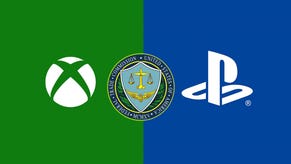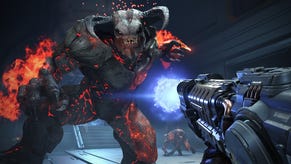Trump blames mass shootings on video game guns, not real guns
Talking Points
In the wake of two mass shootings in El Paso, Texas and Dayton, Ohio over the weekend, U.S. President Donald Trump and members of the Republican Party are placing the blame largely at the feet of the video game industry.
“We must stop the glorification of violence in our society,” Trump said earlier today in his first major response to the two mass shootings which left 30 dead in 13 hours. “This includes the gruesome and grisly video games that are now commonplace. It is too easy today for troubled youth to surround themselves with a culture that celebrates violence. We must stop or substantially reduce this, and it has to begin immediately.” A full transcript can be found here.
Video games have remained a talking point for members of the GOP as they spoke with media over the weekend. Issues of gun control and white supremacy, however, continue to be minimised. Speaking in an interview with Fox and Friends on Sunday, House Minority Leader Kevin McCarthy accused video games that "dehumanise individuals" for the most recent acts of domestic terrorism on American soil. “To have a game of shooting individuals and others, I’ve always felt that is a problem for future generations and others,” he continued.
Texas Lt. Gov. Dan Patrick made similar comments on the Fox News show, attributing blame for the El Paso shooting to “a video game industry that teaches young people to kill” and the “violence of bullying people on social media”. While Lt. Gov. Patrick stated the manifesto which may have been written by the El Paso shooter referenced CoD, there is no evidence that either shooting was inspired by video games.
Renee Gittins, executive director of the International Game Developers Association, and Nika Nour, executive director of the International Game Developers Association Foundation, addressed these discussions in a prepared statement.
“Our deepest condolences and hearts go out to the victims and families affected by the tragic events in Dayton, Ohio and El Paso, Texas. Society has endured too many senseless acts of violence and horrific mass shootings," they wrote. "Blaming video games distracts from the broader issues at hand. There is an overwhelming amount of research that finds there is no evidence linking video games to violence. Video games do not cause violence, and we support efforts to discontinue this misguided information.”
Readers with long memories are likely to feel, with the deep kind of nausea-inducing awareness of the passage of time, just how quickly history can begin repeating itself. Video games have been inciting moral panics for decades. From Jack Thompson's lawsuits against Rockstar throughout the early 2000s, and the Family Entertainment Protection Act of 2005 - a bill co-sponsored by then senator Hillary Clinton which pledged to make the selling of games to minors a criminal act - to the citing of Doom as a cause for the 1999 Columbine shooting and the 1993 hearings held by senators Joe Lieberman and Herb Kohl over the effects of violent video games on children, following the release of Mortal Kombat.
But by 2011, the U.S. Supreme Court made its official statement on violent video games. The case, known as Brown v. Entertainment Merchants Association, acknowledged that a California law restricting the sale of violent games would be in violation of the First Amendment. In 2017, The American Psychological Association’s media-psychology division issued a public statement asking politicians and journalists to refrain from publicly connecting games and violence. Even the Trump administration’s Federal Commission on School Safety itself released a report in 2018 which attested to a lack of evidence that violent games have an effect on mass shootings. And yet.
Anyway, now is probably as good a time as ever to remember that time after the 2018 Parkland school shootings when Trump held a private meeting to discuss video game violence and showed this video:
Photo credit: Donald Trump speaking at CPAC in 2011, by Gage Skidmore.














